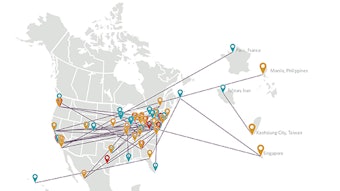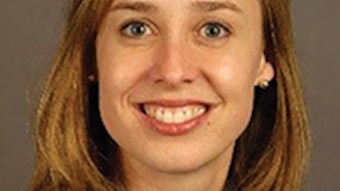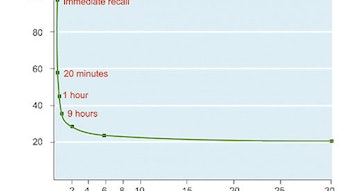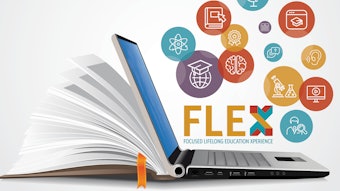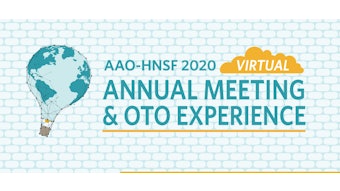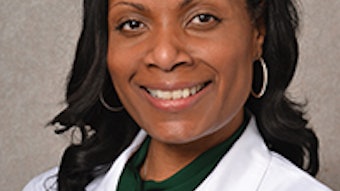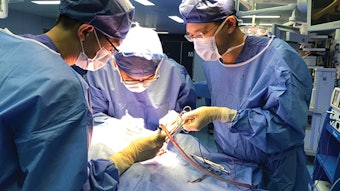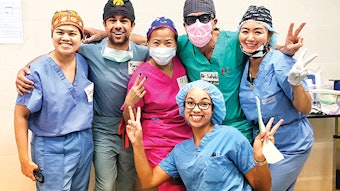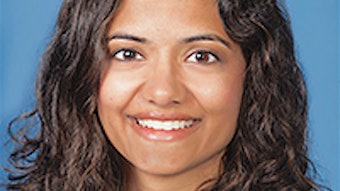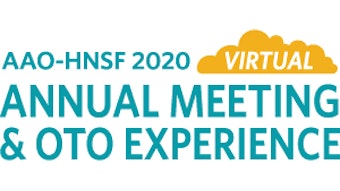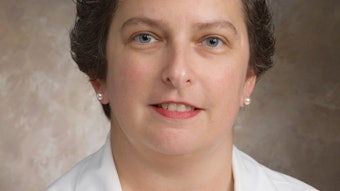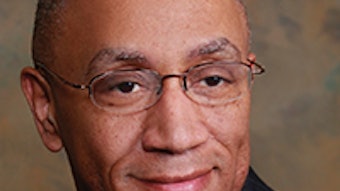The Value of Community and CY21 MPFS Proposals
When the COVID-19 pandemic first hit the United States late last winter, I was optimistic that our planned 124th Annual Meeting & OTO Experience in Boston, MA, would serve as a gathering place for otolaryngologists from around the world to share their experiences in a collaborative, communal way that would facilitate a healing process for those encountering the devastation of the crisis.
 James C. Denneny III, MD
James C. Denneny III, MDAAO-HNS/F EVP/CEO
When the COVID-19 pandemic first hit the United States late last winter, I was optimistic that our planned 124th Annual Meeting & OTO Experience in Boston, MA, would serve as a gathering place for otolaryngologists from around the world to share their experiences in a collaborative, communal way that would facilitate a healing process for those encountering the devastation of the crisis. My recent participation in the “AAO-HNSF International Regional Roundtable” discussions, which were held in preparation for the International Advisory Board meeting at the Annual Meeting, demonstrated that the virtual platform allows many of the same information sharing opportunities and emotional connection as if we were all in Boston together. The mutual concern exhibited by participants around the globe and willingness to share experiences to benefit their colleagues and patients has been truly invigorating.
Likewise, I have been on a number of calls that crossed surgical specialty lines addressing surgical education and training during and after the pandemic, including this year’s virtual interview process for prospective residents and fellows. The genuine concern for the safety and welfare for the students, residents, and fellows, as well as how to provide the best education and training possible given the circumstances, permeated the discussions and has already resulted in significant change. This tangible representation of the resilience of otolaryngologists, the recognition that the care needs across the breadth of the specialty around the world continue, and the assurance we will be there to answer the call kindles hope while bringing great comfort to the patient community.
On August 3, the Centers for Medicare & Medicaid Services (CMS) released the CY 2021 Proposed Rule for the Medicare Physician Fee Schedule (MPFS), which also includes proposals related to the Quality Payment Program (QPP). Perhaps the most heavily discussed component of the MPFS is the proposed CY 2021 conversion factor—$32.2605—a significant decrease of $3.83 (11%) below the CY 2020 PFS conversion factor of $36.09 and 12.1% less than CY 1998 ($36.60). When all the financial recommendations are taken into account, CMS estimates that otolaryngology will see a +7% change in payments. The most impactful of these changes for otolaryngology are the significant upward revaluation of E/M codes and the addition of the new add-on code GPC1X, which is applicable for use with the upper level otolaryngology E/M codes. These positive updates are greater than the negative impact associated with the failure to update the E/M visits included in the -10 and -90 day post-op global packages.
It is concerning that CMS opted to apply the updates to the maternity postpartum global visits and not to the surgical codes with global visits based on “their feeling” that the maternity patients were using their global visits and surgical patients were not. CMS has not produced any plans for accurately determining the true utilization of the services. Despite the recognition that surgical procedures have experienced a progressive devaluation over the last 10 to 15 years due to the failure to update the conversion factor to keep up with inflation, significant change in valuation at the RUC, and now dramatic increase in the valuation of E/M services, the house of surgery has been unable to reverse the existing decline. As we move forward through the healthcare reform debates, it will be critical that we present innovative models that appropriately value surgical services.
CMS continues to push its developing MIPS Value Pathway (MVP) as the future of quality measurement and reporting for the Medicare program. The MVP will serve as the entry into the Medicare Alternative Payment Method (APM) for many physicians unable to access that program so far. We have been working on a “clinical pathways” project that we hope will satisfy the requirements for the MVP program without disrupting normal patient flow or adding administrative requirements. A model such as this also has potential to help maintain the value of surgical procedures. Oddly enough, while CMS is trying to promote their new MVP program, they are placing significantly more requirements on QCDRs and Clinical Data Registries that might result in many third-party intermediaries, such as medical associations, to drop those designations because of the excessive cost and effort to comply. We will continue to work with the registry coalition to advocate for continued participation in the program with acceptable costs and administrative responsibilities.
I hope you will enjoy our 124th Virtual Annual Meeting & OTO Experience that will run from September 13 – October 25, with access to the 300+ hours of education after the meeting ends on our education platform—OTO Logic. It is not too late to take advantage of our offer of free registration to the meeting with your subscription to FLEX that we have extended through October 25.

